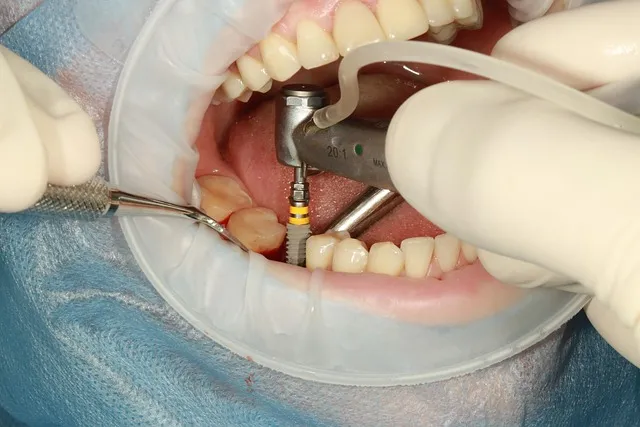The phrase "dental implants" comes up quite often in the cosmetic and dental world. Dental implants are a type of surgical procedure that replaces missing, chipped, or broken teeth with artificial ones. Read our dental hygiene guide to keep your teeth healthy. Since they are a permanent solution to replace teeth and restore their original function, they are very popular. Dental implants also contribute to the restoration of the appearance of the mouth. This article will delve deeply into the topic and learn about dental implants and whether Are Dental Implants Safe.
Types of dental implants
There are 5 common types of dental implants:
- Subperiosteal implants: These are done on the jaw bone and do a great job holding the replacement tooth. They are among the most popular and preferred types of dental implants.
- Endosteal implants: It is common and done using screws, blades, and cylinders for patients with removable dentures or bridges.
- Implant overdentures: These are a modern alternative to traditional dentures and make chewing and speech delivery easier. Furthermore, implants overdentures are more comfortable and do not need you to worry about denture adhesives, etc.
- Implant-supported bridges: The dental surgeon recommends implant-supported bridges when teeth are missing or if a nerve is nearby. They may also choose this procedure if the jawbone cannot support other implants.
- All-on-4 dental implants: A suitable type for adults who do not want dentures. It involves using a small titanium screw, and 4 implants are used per jaw. That is why they are named as such.
Are Dental Implants Safe?
They are very safe! Technology has advanced quite a bit in the past few decades, and dental implants have significantly improved simultaneously. The installation process of implants continues to get better and safer. However, one must note that this is still a surgical procedure, and just like any other surgical procedure, it will have a few risk factors. You might also wonder at this point about contraindications. Are dental implants safe for diabetics? That's a valid question, and thankfully, the answer is positive. Dental implants are safe for diabetics only if adequate measures are taken and the blood sugar levels are controlled. Uncontrolled diabetes and extremely high blood sugar levels can prove to be dangerous. Dental implants are also safe for the elderly. There is no age limit, and the only condition is for the patient to be healthy.
Are dental implants painful?
While the procedure can be slightly uncomfortable, it is not really painful. The surgeon will administer local anesthesia to numb the area so that you feel no pain. In a few cases, the surgeon may also choose sedation so that you relax completely.
How do dental implants work?
After administering local anesthesia, the dentist will start with an incision in the gums. This incision is quite small. He will then place the implant into the jawbone. The implant is made of titanium, a biocompatible metal well-tolerated by the body. Over the next few months, the implant will fuse with the jawbone, creating a strong and stable foundation for the replacement tooth. The next step in the process is the attachment of the artificial tooth. This can either be done by attaching a temporary tooth to the implant while the implant fuses with the jawbone or by attaching the permanent tooth after the implant heals. Many patients prefer the first method because it allows them to eat and speak normally while healing occurs. The second method has a longer recovery period of around 3-6 months.
Benefits of dental implants
While there are many benefits of dental implants, we have highlighted the most significant ones:
- They restore one's cosmetic appearance
- They restore the ability to chew and eat
- They prevent the shrinkage of the jawbone due to bone loss
- They ensure that the neighboring teeth and gums remain healthy
- They improve the overall quality of life and self-confidence
- They enhance oral health
- They are convenient and durable
- Dental implants are also very comfortable
Risk factors involved in dental implants
Some of the things you should be very careful about are as follows:
- Injury to the tissues around the point of surgery
- Injury to the jawbone during surgery
- In some cases, poor oral hygiene can be possible because it may be difficult to clean the gums.
- Injury to the neighboring natural teeth
- Post-surgical numbness
If the side effects or risk factors feel overwhelming or significant, we advise you to reach out to your healthcare provider so that the issue is identified and rectified immediately.
Conclusion
Dental implants are a safe and permanent solution to broken or missing teeth. They can enhance the appearance of the mouth and restore function, among other things. If your dentist has suggested dental implants, we suggest you do your homework on the best method, ask your doctor as many questions as needed to get clarity, and then decide on the way forward. We hope this article helped you find answers to your most pressing question "Are Dental Implants Safe".
You May Also Read: Top 8 Signs That You Need Dental Implants

Reviewed by







